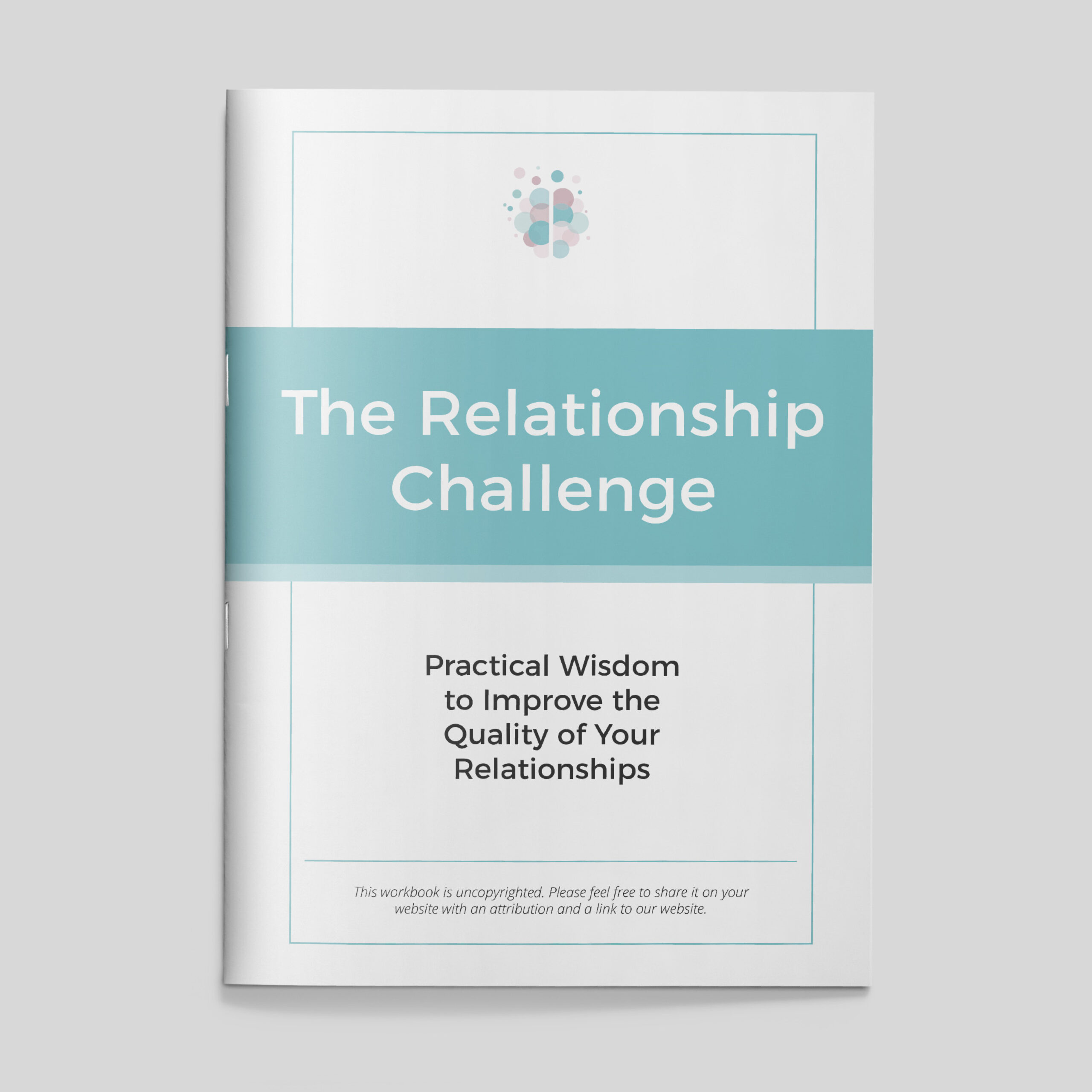How would your life improve if you could absorb the wisdom from 30 bestselling relationship books in just 30 days?
Guess what? You can!
The app Blinkist summarises thousands of non-fiction books into short audio and written “blinks”.
We’ve designed a free practical tool you can use alongside Blinkist, The 30 Day Relationship Challenge.
It includes our handpicked best summaries with practical information to help you improve the quality of your relationships.
Research shows that the strength of your social connections is a key determinant of your happiness. Why not invest just 30 days to learn the most essential skills for mental wellbeing?
This challenge can help you:
- Set effective boundaries
- Become more assertive
- Reduce relationship conflict by learning how to manage challenging emotions
- Understand your relationship needs and desires
- Adopt a healthy mindset towards relationships
- Understand the signs of abuse and how to deal with it
Inside the PDF, you’ll find detailed journaling prompts for each book to encourage effective self-reflection and learning.
There’s a lot of practical information inside – you don’t need to complete the challenge in consecutive days. Take your time to process what you’ve learned and to reflect on any action steps you want to take.
Who Is This Challenge For?
It's for anyone who wants to enhance the quality of their relationships.
Whether you're in a long-term partnership, newly dating, or seeking to improve your relationships with family and friends, this challenge is for you.
Start The 30 Day Relationship Challenge Today
To begin, simply download the Blinkist app and take advantage of their 7-day free trial.
Currently, they're offering a 2-for-1 deal, allowing you to share your subscription with another person. We believe this offer provides exceptional value, and we're confident you'll enjoy the app as much as we do!
Remember, relationships require attention and effort to thrive. By dedicating yourself to this challenge, you're taking proactive steps towards building stronger connections and creating a future filled with love, joy, and fulfilment.
To get a sense of what you'll be learning, check out the key insights listed below.
Get The 30 Day Relationship Challenge (39 page PDF)
26 Key Expert Insights from The 30 Day Relationship Challenge
Keep reading to discover the essential insights from the challenge. These are included at the end of the PDF to provide you with an easy way to reinforce your learning and implement positive changes in your relationships.
- Healthy relationships involve an ongoing conflict repair cycle; problems are an integral part of all relationships.
- The key to successful long-term relationships is effective communication throughout this cycle. It’s the ability to work through relationship issues in an open, respectful way, being direct about your feelings and needs.
- Never assume you know what someone is thinking or feeling – avoid “mind reading”.
- To improve your relationships, work on developing your listening skills, i.e., practice being fully present and use paraphrasing to check your understanding.
- LUFU – listen until they feel understood. Give people enough time and space to express themselves. Communicate understanding and acceptance while listening.
- In difficult conversations, it’s important to watch for early warning signs of emotional flooding and strategically calm yourself down. Monitor yourself, noticing your gestures, facial expressions and vocal pitch.
- If you feel emotionally overwhelmed, return to the conversation when your emotions have subsided.
- We all need to take responsibility for our emotions. Directly blaming someone for your feelings will only result in them feeling guilty and lead to defensiveness and a lack of co-operation.
- To take responsibility for your emotions, work on your distress tolerance skills. Being able to effectively manage your emotions allows you to avoid unnecessary arguments and aggressive communication (for a step-by-step guide to dealing with challenging emotions, see The Thinking Slow Method).
- Being able to name and lean into your emotions is an important step to defusing them.
- It’s also important to be mindful of your unhelpful thinking patterns such as rumination, catastrophising, and black-and-white thinking. Learn to distinguish facts, interpretations and emotions.
- Be mindful of your brain’s negativity bias – consciously choose to see the positives.
- If you regularly feel stressed and uncomfortable, it’s a sign you need to set boundaries and become more assertive. Doing this can be nerve-wracking, but it’s nothing compared to having your boundaries violated on a long-term basis.
- Think of communicating your feelings and needs as a form of gift-giving – you’re providing someone with the opportunity to meet your needs and give you a sense of fulfilment.
- Setting boundaries involves connecting your feelings to your needs and communicating in a clear, non-judgemental way. A simple framework from the Non-Violent Communication (NVC) model is: “When you _____, I feel _____, because I need _____. I’d really appreciate it if you could _____.” Remember: observations, feelings, needs and requests. Want worksheets for this? See The Mental Wellbeing Toolkit.
- When someone violates your boundaries, you can: 1) restate them; 2) issue consequences (i.e., ending the conversation); 3) re-evaluate the relationship.
- Traits that make you vulnerable to boundary violations and abuse include: the need for validation from others, difficulty with confrontation, low self-esteem and a desire to save others. These traits make you more likely to put other people’s needs above your own.
- If this sounds like you, remember that you have the right to your own needs, desires, values and beliefs. Stand up for yourself. You are worthy of your own happiness.
- We all have five fundamental relationship needs: attention, acceptance, appreciation, affection, and allowing others to be who they are (the five A’s).
- When dealing with relationship conflict or dissatisfaction, the five A’s can be a useful framework for understanding what could be improved.
- Romance, passion and desire come and go. Keep the spark alive in long-term relationships through actions that address the five A’s. This can range from big gestures such as thoughtful gifts, to small gestures like responding to your partner in an attentive, caring way. We all make “bids” for each other’s attention and affection throughout the day – responding to these bids is key to cultivating a deeper connection.
- If your parents were unable to meet your fundamental needs growing up, you may settle for and/or create unhealthy relationships in adulthood.
- Breaking this pattern involves processing your past, developing self-awareness, and communicating your feelings and needs.
- Do not confuse love with obsessive feelings which stem from emotional pain. Take time to assess someone’s trustworthiness and emotional availability. Pay attention to red flags such as speaking badly of previous partners, getting serious too quickly, and putting on a show of generosity that makes you feel uncomfortable.
- Signs of a healthy relationship include: 1) mutual respect between partners; 2) shared meaning, goals, and values; 3) an intuitive feeling that things are 'just right'; 4) addressing each other’s fundamental needs; 5) thinking positively of your partner in their absence.
- Signs that a relationship isn’t working include: 1) lacking a sense of respect and appreciation towards your partner; 2) not trusting your partner and/or feeling unsafe around them; 3) a lack of positive feelings in each other’s company; 4) no longer desiring physical intimacy; 5) criticism, contempt, defensiveness, and/or stonewalling behaviours.
Summary
We’re passionate about creating concise yet comprehensive tools that save you time, energy, and money.
Blinkist's innovative "blinks" format deeply resonates with our philosophy, inspiring us to create this tool. Sadly, schools often neglect to teach essential relationship skills, leaving us to seek out this knowledge ourselves.
We hope this tool provides you with an easy-to-use, motivating format to absorb tons of valuable insights.
We hope you find it useful!




